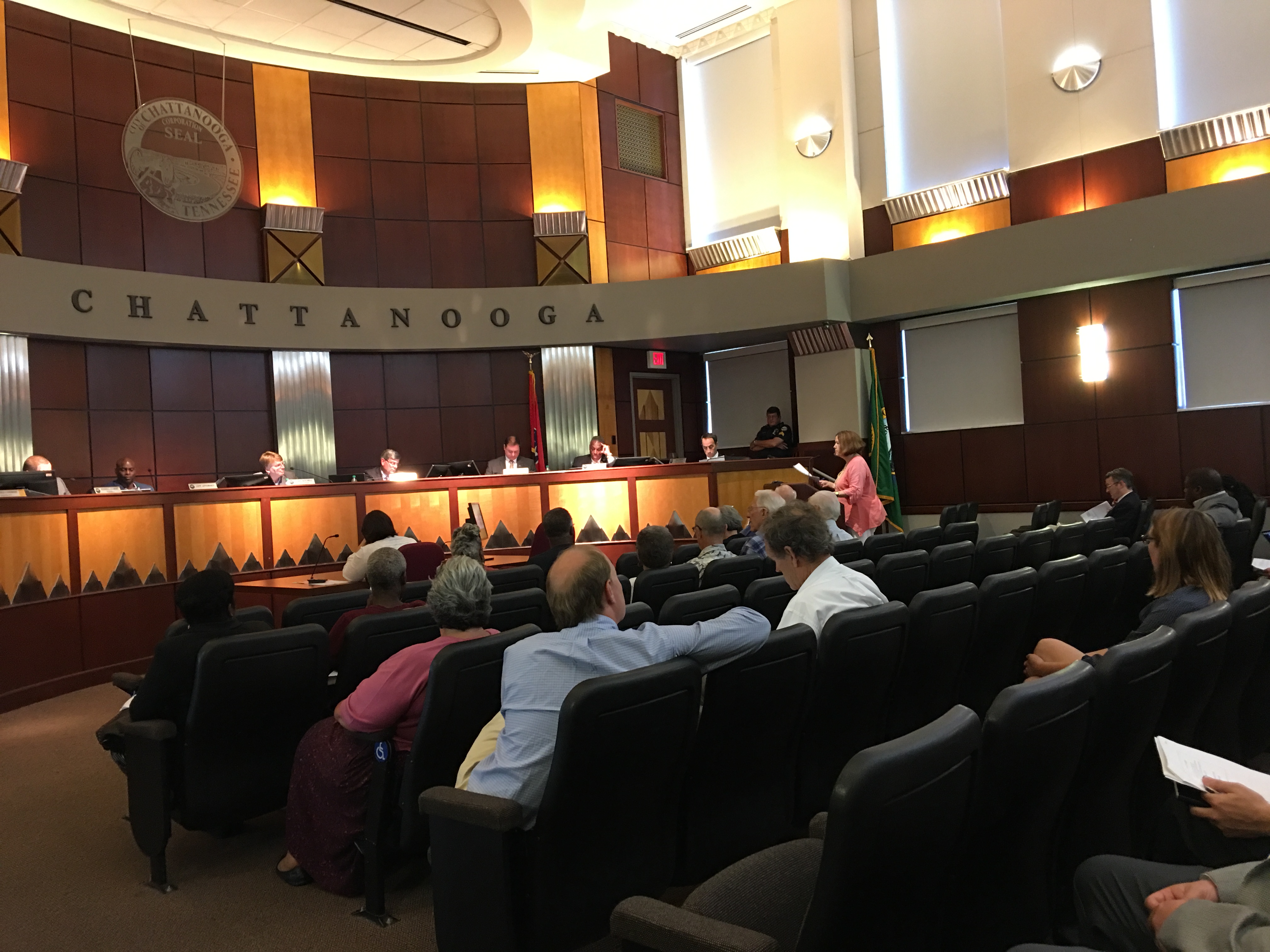We want to be business friendly, but we need to be careful and strategic.
Chattanooga officials said Tuesday they expect future road and other infrastructure projects to come before the city seeking tax-increment financing as an incentive.
"We anticipate getting multiple applications," said Charita D. Allen, Chattanooga's deputy administrator for economic development.
Allen reviewed the steps the city has put into place regarding the incentives known as TIFs with the city's Industrial Development Board, saying the discussion was needed "in anticipation of future TIFs in 2017 or early 2018."
Allen wouldn't give specifics regarding particular projects which may come up in future months seeking TIF incentives from the city. But, she said, some projects eligible for TIFs may be generated by developers and others spurred on by the city.
Under a TIF, developers spend the money for a project up front, then are paid back with interest over a period out of additional tax revenues generated by the development. While the project may happen, the city loses for a set time property tax revenues which might have been used for such services as police and fire.
TIFs have been rarely utilized in the city in the past. Earlier this decade, developers of the Black Creek housing development in Lookout Valley won a $9 million TIF to build a road to the top of Aetna Mountain for new homes and businesses to be built.
A lawsuit was later filed by Helen Burns Sharp, founder of the citizens group Accountability for Taxpayer Money, against the Industrial Development Board over that TIF financing. She claimed the IDB met secretly in 2012 and again in 2014 - after Sharp won her first suit - before the panel approved and then reapproved the Black Creek TIF.
The city agreed to pay Sharp $22,500 to settle the lawsuits.
The city's current TIF process was developed in 2015, but there haven't been any approved since then, according to city spokeswoman Marissa Bell.
Sharp said she's not against TIFs.
"I don't dislike TIFs," she said. "TIFs and PILOTs (Payment in Lieu of Tax agreements) can be good. We do have to be judicious. We want to be business friendly, but we need to be careful and strategic."
Sharp also questioned if TIFs approved by the city council would go before the Hamilton County Commission, and she said that language such as clawbacks and payment of education taxes needed to be written down.
Industrial Development Board Chairman James Miller said that even though the city council approved the TIF policy in 2015, Tuesday was the first time the panel had seen them.
But, he said, he likes the TIF procedures, which require layers of overview by the IDB and city council as well as an examination by an "Application Review Committee" that could include specialists in the particular field the incentive is requested, such as transportation.
"I think the process is wonderful," Miller said. "It's 1,000 percent better than Black Mountain."
Allen said discussions with the city attorney could ensure that language on specific requirements is included.
While historically the city hasn't used TIFs much in the past, they can be utilized in the future in areas where the city wants to see development accelerated, she said.
IDB member Jimmy Rodgers raised questions about whether the policy includes language about the "corporate responsibility" of a TIF applicant. Another issue, he said, could involve whether a company plans to use local workers when it can.
IDB attorney Phil Noblett said there are some tools the city can use to encourage companies, but there are limits.
Contact Mike Pare at mpare@timesfreepress.com or 423-757-6318.


